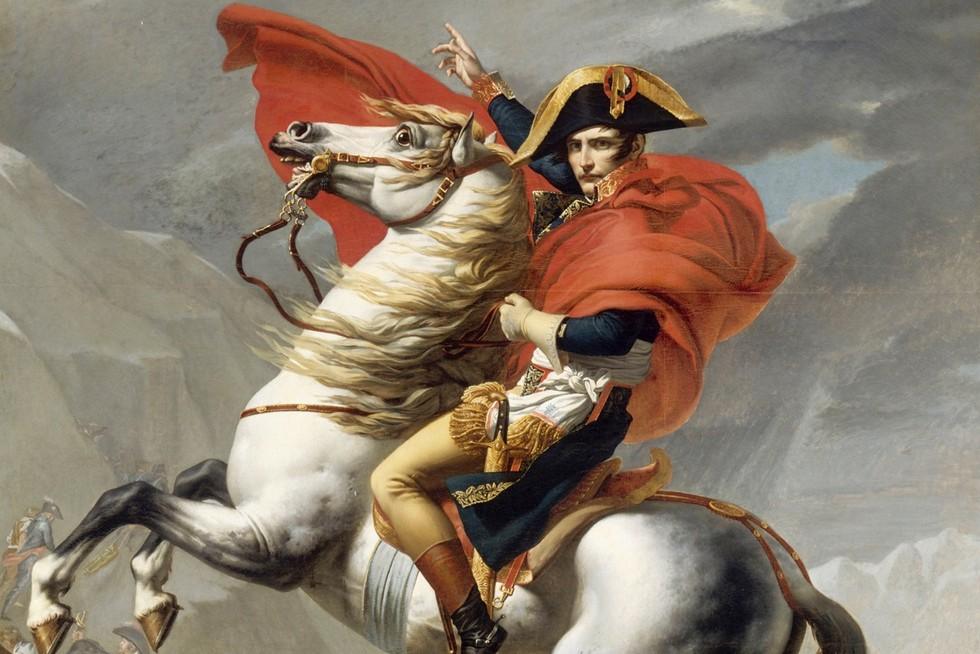
Revolution and Empire: The French Revolution and Napoleon’s Legacy
Revolution and Empire: The French Revolution and Napoleon’s Legacy
The French Revolution and Napoleon represent one of history’s most transformative periods, fundamentally reshaping not only France but the entire European continent and beyond. This pivotal era, spanning from 1789 to 1815, witnessed the collapse of the ancient regime, the rise of revolutionary ideals, and the emergence of one of history’s most influential leaders. As timeless reporter accounts demonstrate, these events continue to captivate historians and the general public alike, serving as a crucial lens through which we understand modern democratic principles, nationalism, and the complex relationship between revolution and empire.
The significance of studying this history extends far beyond academic curiosity. The French Revolution introduced concepts that remain central to contemporary political discourse: liberty, equality, fraternity, popular sovereignty, and constitutional government. Meanwhile, Napoleon’s subsequent rise to power illustrated how revolutionary movements can transform into imperial ambitions, creating a template that would echo through subsequent centuries of political upheaval and change.
Understanding the interconnected nature of the French Revolution and Napoleon’s empire provides essential insights into how societies transform, how leaders consolidate power, and how revolutionary ideals can both inspire and be corrupted. This comprehensive examination will explore the causes and course of the revolution, Napoleon’s rise and reign, the lasting impact of both phenomena, and their enduring relevance to our modern world.
The Causes and Course of the French Revolution
The French Revolution emerged from a perfect storm of social, economic, and political crises that had been brewing throughout the 18th century. The Ancien Régime, France’s traditional feudal system, had become increasingly dysfunctional and unable to address the nation’s mounting problems. Economic inequality reached staggering proportions, with the Third Estate—comprising roughly 98% of the population—bearing the burden of taxation while the nobility and clergy enjoyed extensive privileges and exemptions. This systemic injustice created widespread resentment and provided fertile ground for revolutionary sentiment.
The immediate catalyst came through France’s fiscal crisis, largely stemming from expensive wars including the Seven Years’ War and French support for the American Revolution. King Louis XVI’s government faced bankruptcy, forcing him to convene the Estates-General in 1789—the first such assembly since 1614. This decision proved fateful, as representatives of the Third Estate seized the opportunity to challenge the existing order, forming the National Assembly and taking the Tennis Court Oath, pledging to create a new constitution for France.
The revolution’s early phase (1789-1792) witnessed dramatic changes that would reshape French society permanently. The storming of the Bastille on July 14, 1789, became a powerful symbol of popular uprising against tyranny. The National Assembly abolished feudalism, adopted the Declaration of the Rights of Man and of the Citizen, and restructured French society according to Enlightenment principles. These reforms dismantled centuries of traditional hierarchy and established new foundations based on merit rather than birth.
However, the revolution’s trajectory proved far from smooth or predictable. As external threats mounted and internal divisions deepened, the revolution entered increasingly radical phases. The execution of Louis XVI in 1793 shocked European monarchies and led to the formation of coalitions determined to crush the revolutionary government. Domestically, competing factions struggled for control, leading to the period known as the Reign of Terror (1793-1794), during which thousands were executed as enemies of the revolution. This period demonstrated how revolutionary movements can spiral toward extremism when faced with existential threats and internal conflicts.
Napoleon’s Rise to Power During the French Revolution
The relationship between the French Revolution and Napoleon represents one of history’s most complex and consequential political transformations. Napoleon Bonaparte emerged from relative obscurity during the revolution’s chaotic middle years, demonstrating exceptional military talent and political acumen that would eventually elevate him to supreme power. His rise illustrates how revolutionary periods create opportunities for ambitious individuals to reshape entire societies and, ultimately, how revolutionary ideals can be both preserved and subverted by those who claim to champion them.
Napoleon’s early career coincided with the revolution’s most turbulent phases. Born in Corsica in 1769, he received a military education that prepared him for artillery service in the royal army. However, the revolution’s outbreak created unprecedented opportunities for advancement based on merit rather than aristocratic connections. As many noble officers fled France or were purged, talented individuals like Napoleon could rise rapidly through the ranks. His successful defense of Toulon against royalist forces in 1793 earned him promotion to brigadier general at just 24 years old, demonstrating his military genius and unwavering support for the revolutionary cause.
The Directory period (1795-1799) proved crucial for Napoleon’s political ascent. France’s revolutionary government struggled with economic problems, military challenges, and political instability, creating a power vacuum that Napoleon skillfully exploited. His Italian campaigns (1796-1797) brought him tremendous fame and military prestige, while his political connections in Paris positioned him as a potential savior of the revolution. The Directory’s weakness and unpopularity made many French citizens yearn for strong leadership that could preserve revolutionary gains while providing stability and order.
Napoleon’s coup d’état of 18 Brumaire (November 9, 1799) marked the effective end of the Directory and the beginning of the Consulate, with Napoleon as First Consul. This event represented a masterful political calculation: Napoleon presented himself as the defender of revolutionary principles against both royalist restoration and radical excess. He promised to preserve the revolution’s core achievements—legal equality, religious tolerance, merit-based advancement—while providing the strong leadership that France desperately needed. This positioning allowed him to consolidate power while maintaining popular support and revolutionary legitimacy.
The transformation from revolutionary general to First Consul, and eventually to Emperor, revealed Napoleon’s extraordinary political skills and understanding of public sentiment. He recognized that most French citizens wanted to preserve the revolution’s benefits while ending its chaos and instability. By positioning himself as the revolution’s heir and protector, Napoleon could justify increasingly autocratic measures as necessary for defending revolutionary achievements against internal and external enemies.
The Napoleonic Empire and Its European Impact
Napoleon’s transformation from revolutionary leader to emperor created one of history’s most influential empires, fundamentally altering the political landscape of Europe and establishing precedents that would resonate throughout the 19th and 20th centuries. The French Revolution and Napoleon together represented not just French phenomena but continental European experiences that challenged traditional monarchical systems and introduced new forms of governance, law, and national identity across the continent.
The establishment of the Napoleonic Empire in 1804 marked a decisive break with both the Ancien Régime and the revolutionary republic. Napoleon’s coronation as Emperor of the French demonstrated his political genius: he created a new form of sovereignty that combined revolutionary principles with imperial grandeur. Unlike traditional monarchs who claimed to rule by divine right, Napoleon presented himself as the people’s emperor, deriving his authority from popular will and revolutionary legitimacy. This innovation created a template for future leaders who would claim democratic mandates while exercising authoritarian power.
Napoleon’s legal and administrative reforms proved even more enduring than his military conquests. The Napoleonic Code, implemented in 1804, created a comprehensive legal system that balanced revolutionary principles with practical governance needs. This code established legal equality, protected private property, and created a merit-based society while maintaining social order and hierarchy. The code’s influence extended far beyond France, as Napoleon imposed it throughout his empire and many countries subsequently adopted similar legal frameworks. Modern legal systems in Continental Europe, Latin America, and parts of Africa still reflect Napoleonic influences.
The continental impact of Napoleon’s empire extended beyond legal and administrative reforms to include fundamental changes in political consciousness and national identity. As Napoleon’s armies swept across Europe, they carried revolutionary ideals that challenged traditional authority structures. The concept of popular sovereignty, national self-determination, and legal equality spread throughout the continent, often taking root even after Napoleon’s defeat. German intellectuals, Italian nationalists, and Polish patriots all drew inspiration from Napoleonic examples, creating lasting legacies that would fuel 19th-century nationalism and democratization movements.
However, Napoleon’s empire also demonstrated the inherent tensions between revolutionary ideals and imperial ambitions. While spreading concepts of liberty and equality, Napoleon simultaneously imposed French hegemony and exploited conquered territories for French benefit. This contradiction revealed how revolutionary movements could transform into imperial enterprises, a pattern that would repeat throughout subsequent centuries. The empire’s ultimate failure stemmed partly from this tension: subject peoples initially welcomed French revolutionary principles but eventually resented French domination, leading to the nationalism that ultimately contributed to Napoleon’s downfall.
Revolutionary Ideals vs Imperial Ambitions in Napoleon’s Rule
The tension between revolutionary principles and imperial power represents one of the most fascinating aspects of French Revolution and Napoleon studies, offering crucial insights into how political movements evolve and how leaders navigate competing demands for legitimacy and effectiveness. Napoleon’s career embodied this fundamental contradiction: he genuinely championed many revolutionary ideals while simultaneously constructing an autocratic empire that contradicted democratic principles. This paradox illuminates broader questions about the relationship between revolution and authority that continue to relevant in contemporary political analysis.
Napoleon’s domestic policies demonstrated his commitment to preserving core revolutionary achievements while adapting them to imperial needs. The principle of carrière ouverte aux talents (careers open to talent) remained central to Napoleonic administration, ensuring that merit rather than birth determined advancement in government, military, and society. The educational system


